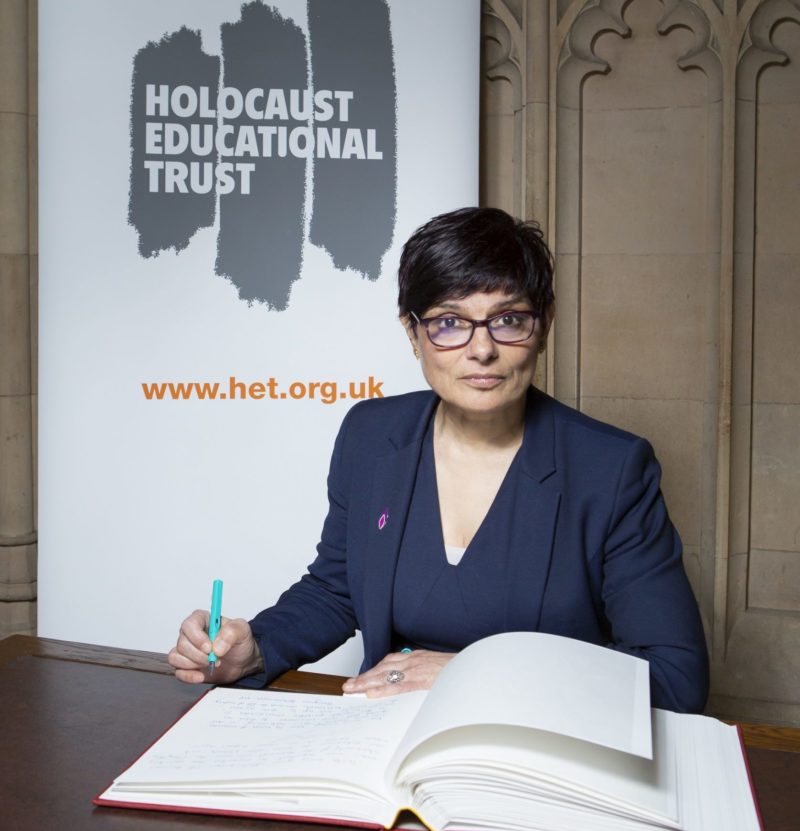Thangam Debbonaire
MP for Bristol West
Shadow Secretary of State for Culture, Media and Sport

This week I signed the Holocaust Educational Trust’s Book of Commitment, pledging my commitment to Holocaust Memorial Day and honouring those who were murdered during the Holocaust as well as paying tribute to the extraordinary Holocaust survivors who work tirelessly to educate young people today.
This year, 27 January marks 77 years since the liberation of Auschwitz-Birkenau, the largest Nazi concentration and extermination camp.
In the lead up to and on Holocaust Memorial Day, thousands of commemorative events will be arranged by schools, faith groups and community organisations across the country, remembering all the victims of the Holocaust and subsequent genocides.
Holocaust Memorial Day is an important opportunity to reflect on the darkest times of European history. As the Holocaust moves from living history, to history, it becomes ever more important that we take the time to remember the six million Jewish victims and also pay tribute to the survivors.
I’ve been thinking about the ways people try to keep memory with the victims. I’ve seen and read many hundreds of stolpersteine laid into the pavement in front of the buildings the victims lived in, with name, date of birth and, if possible, date and location of death. Each one reminds us that those overwhelming numbers are a sum of lives lived and cut short, people who loved and had potential for more love. People who died because of hatred.
Last year’s Holocaust Memorial Day fell during national lockdown. The theme last year was ‘Be the Light in the Darkness’. Many of us logged into the online event and lit candles for remembrance for victims. I will do the same again today.
The theme of this year’s Holocaust Memorial Day is ‘One Day’. This is a chance to reflect on the events that led up to previous genocides, including the Holocaust and other instances of mass murder including in Bosnia, Cambodia, Rwanda and Darfur. By taking the time on this day especially, reflecting on the past, I believe that our work together every day, building connections between people and breaking barriers, will lead us towards ‘one day’ in the future where there is no genocide. It can feel like an overwhelming task. But the alternative – not trying to stop it – is unthinkable.
So on this year’s Holocaust Memorial Day I think particularly of those whose experience of survival and testimony and of making sense of loss, and I thank them for helping us all to get to that ‘one day’.
